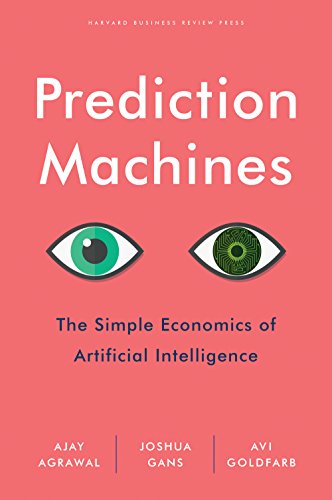Overview of “Prediction Machines: The Simple Economics of Artificial Intelligence” Link to heading
Summary Link to heading
“Prediction Machines: The Simple Economics of Artificial Intelligence” by Avi Goldfarb, Ajay Agrawal, and Joshua Gans offers a comprehensive examination of how AI, specifically machine learning and predictive algorithms, is reshaping traditional economic concepts. The authors argue that the fundamental role of AI is to lower the cost of prediction, which has wide-reaching implications for decision-making processes within businesses and economies. They explore how cheaper prediction affects various industries and what it means for data, human judgment, and the value of work in an AI-driven world.
Review Link to heading
The book has been praised for its clear and practical approach to understanding artificial intelligence through an economic lens. By focusing on the concept of prediction, the authors provide a novel framework that is accessible to both business professionals and those without a strong technical background. One of the strengths of the book is its ability to simplify complex ideas without sacrificing depth. However, some critics have noted that the book could delve deeper into the ethical and societal implications of AI, as it focuses primarily on economic impacts. Overall, it serves as a valuable resource for those looking to understand the economic transformations induced by AI technology.
Key Takeaways Link to heading
- Prediction as a Commodity: AI reduces the cost of prediction, analogous to how the steam engine reduced the cost of power.
- Decision-Making: As prediction becomes cheaper, the value of human judgment increases, highlighting the importance of combining AI with human insights.
- Data as an Asset: The authors emphasize the crucial role of data as a core component of effective AI systems, which businesses need to recognize and leverage.
- Redefining Tasks: AI may change the nature of jobs rather than eliminate them, requiring a re-evaluation of tasks that humans and machines perform.
- Strategic Implementation: Organizations should identify decision-making points where prediction can be most valuable and strategically implement AI technologies.
Recommendation Link to heading
This book is highly recommended for business leaders, economists, policymakers, and anyone interested in the strategic implications of AI. By framing AI in economic terms, readers can gain a practical understanding of how to integrate AI into business practices effectively and prepare for the changes it brings to various sectors. It is particularly useful for those who seek a strategic edge in leveraging AI to drive economic value.
